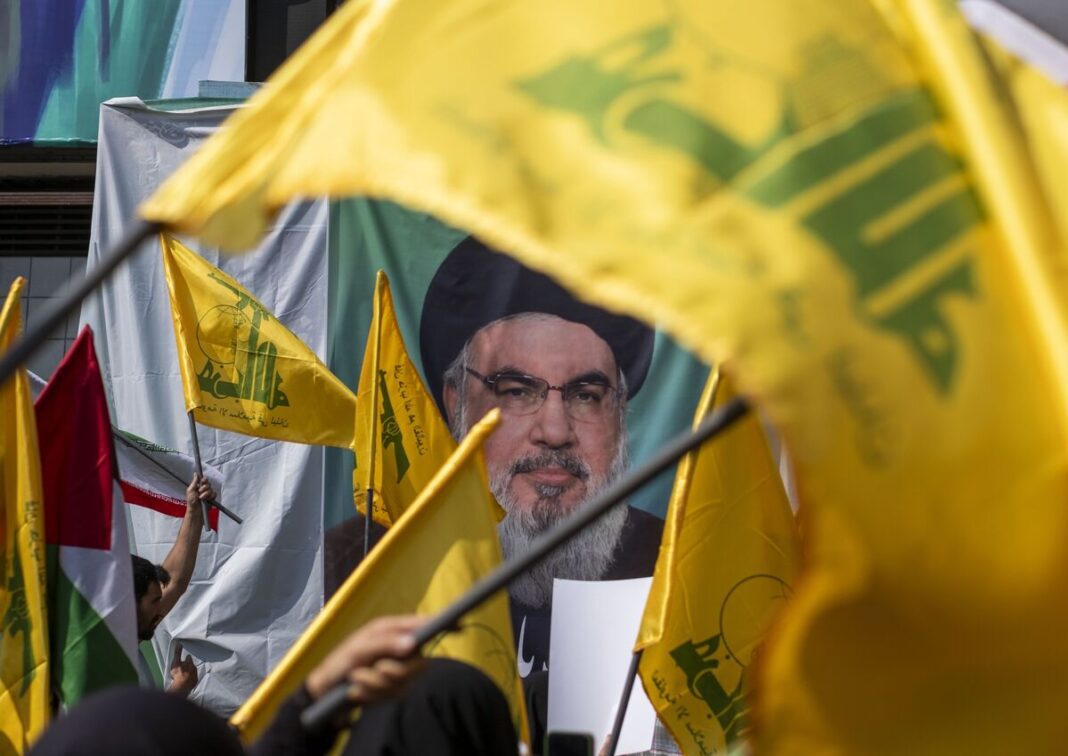Hezbollah’s Secretary-General Hassan Nasrallah was killed on Friday. This has created a leadership vacuum in one of the Middle East’s most powerful Shia movements. His death was due to a massive Israeli airstrike on southern Beirut. It is a major blow to Hezbollah, which has already lost several key leaders due to months of Israeli assassinations.
Nasrallah was more than just a figurehead. He embodied Hezbollah’s strength, resistance, and the hope of Lebanon’s Shia population. Leading the organisation since 1992, Nasrallah became a symbol of defiance not only for Hezbollah but for millions of supporters across the region. His passing leaves Hezbollah scrambling for a leader of similar stature as Israeli attacks continue, with a possible ground invasion looming over southern Lebanon.
Two main figures are now being discussed as potential successors: Hashem Safieddine and Naim Qassem. Let’s take a closer look at these two contenders.
Hashem Safieddine: The Front-Runner for Hezbollah’s Leadership
Background and Family Ties
Hashem Safieddine, Hezbollah’s Executive Council head, is widely considered the leading candidate to take over Nasrallah’s role. Born in 1964 in Deir Qanoun en-Nahr, a small village near Tyre in southern Lebanon, Safieddine comes from a prominent Shia family with deep roots in Lebanese politics and religion. His cousin, Nasrallah, has been a lifelong ally, and their shared background in theology has helped shape Hezbollah’s religious and political ideologies.
Safieddine’s religious education mirrors Nasrallah’s. Both men studied in two key Shia learning centers: **Najaf** in Iraq and **Qom** in Iran, where they absorbed religious and political philosophies that would later define Hezbollah’s strategic outlook.
Close Ties to Iran
One of Safieddine’s key advantages in the succession race is his strong connections to Iran, Hezbollah’s principal backer. The late Iranian General Qassem Soleiman’s daughter is married to his son Redha Safieddine. In 2020, an American drone attack killed Qassem Soleiman. These ties give Safieddine significant leverage. As Tehran’s support is crucial for anyone aiming to lead Hezbollah.
In addition to his familial links, Safieddine serves on Hezbollah’s Shura Council and heads the Jihadi Council, both central to the group’s decision-making process. His leadership of the Executive Council, which oversees Hezbollah’s internal and external operations, cements his position as one of the most powerful figures within the movement.
Designation as a Terrorist
International attention has been focused on Safieddine because of his importance within Hezbollah. Both the United States and Saudi Arabia have labeled him a terrorist, freezing his assets and limiting his international travel. Despite this, Safieddine’s influence within Hezbollah and his strong connections to Iran make him a formidable candidate for leadership.
Naim Qassem: The Longtime Deputy
A Veteran of Hezbollah
At 71 years old, **Naim Qassem** is Hezbollah’s longest-serving deputy secretary-general and has been a key figure in the movement since its inception. Born in **Kfar Kila**, a village in Lebanon’s Nabatieh governorate, Qassem’s experience with Israeli attacks goes back decades. His southern Lebanese roots have given him credibility among the group’s followers, especially as southern Lebanon remains a battleground in the ongoing conflict with Israel.
Qassem was an early activist in Lebanon’s Shia political scene. In the 1970s, he joined Imam Musa al-Sadr’s Movement of the Dispossessed, which later evolved into the Amal Movement. By the 1980s, Qassem had grown disillusioned with Amal’s approach and became one of the founding members of Hezbollah. By solidifying his status as a pioneer of the group’s mission to resist Israeli occupation.
Religious Scholar and Public Face
Qassem’s contributions to Hezbollah go beyond military or political operations. He is also recognized as a religious scholar, having taught classes in Beirut for many years. His religious mentor, the revered Ayatollah Mohammad Hussein Fadlallah, shaped much of his thinking. By grounding Qassem in Shia Islamic jurisprudence and philosophy.
Despite Hezbollah’s secretive structure, Qassem has taken on many public-facing roles over the years. He oversees parts of Hezbollah’s educational network. He has also played a significant role in the group’s political strategy in Lebanon’s parliament. His book, Hezbollah, the Story from Within, published in 2005. This offers one of the rare insider perspectives on the organisation. The book has been translated into several languages, enhancing Qassem’s profile on the global stage.
Trusted but Reserved
While Qassem has been a trusted deputy for over three decades. But his leadership style contrasts with Nasrallah’s. Qassem is known for being more reserved, less charismatic, and less visible on the international stage. Although highly respected within Hezbollah. Some wonder if Qassem’s quiet demeanour would be enough to rally the group in the face of increased Israeli pressure and regional instability.
What’s Next for Hezbollah?
As Hezbollah confronts the future without its iconic leader, the choice between Safieddine and Qassem will have major implications. Safieddine’s close ties to Iran and deep involvement in Hezbollah’s military and religious councils make him the frontrunner. Qassem’s seniority and long history with the movement also make him a viable candidate.
Whichever path Hezbollah takes, the new leader will face unprecedented challenges. Israeli military action continues to target key figures and infrastructure, and a potential ground invasion could further destabilize southern Lebanon. Additionally, the movement must maintain the support of its Iranian backers while navigating a complex and increasingly polarised Middle Eastern political landscape.
Nasrallah’s successor will need to balance these pressures while maintaining Hezbollah’s influence in Lebanon and the wider region. The road ahead will not be easy, and finding a leader who can match Nasrallah’s stature may prove impossible. However, with Safieddine and Qassem both vying for leadership, Hezbollah’s future, though uncertain, is sure to be shaped by men with deep roots in its past. In the coming weeks, the world will watch closely to see who emerges as the new face of Hezbollah.

